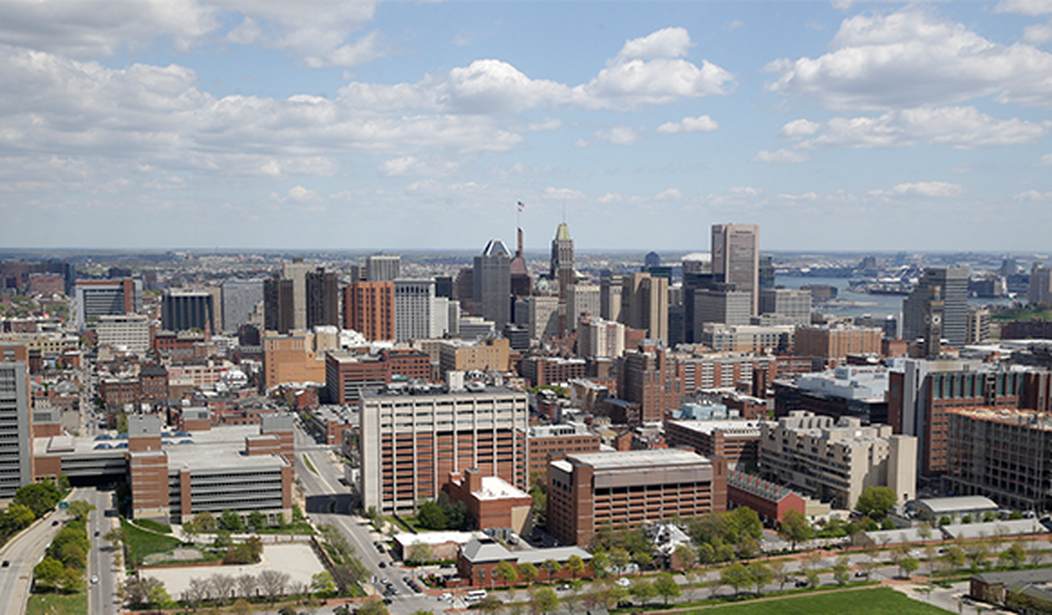I recently finished binge-watching every episode of The Wire, the HBO series that started almost 20 years ago and shined a spotlight on Baltimore’s drug and gang violence, as well as the corrupt politicians and crooked cops that have plagued the city for decades.
Not much has changed since the show went off the air in 2008, at least not for the better. In fact, the homicide rate in the city has actually increased since then. I remember watching one episode where the city’s mayor was frantic over the fact that the city was on pace for 250 homicides, and now that would be a remarkable sign of progress. The city hasn’t seen fewer than 300 murders in a given year since 2014, and Baltimore’s murder rate this year is about 17% higher than it was at the same time last year.
One of the city’s first homicide victims of 2021 was anti-violence activist Dante Barksdale, who was also the nephew of Nathan Barksdale, one of the inspirations for The Wire two decades ago. Dante Barksdale, also known as “Tater”, was one of the leaders in Baltimore’s Safe Streets program, which sought to use “violence interrupters” to stop beefs from turning deadly, but he himself was shot and killed on January17th outside of the Douglass Homes housing project.
Months went by without police making an arrest in the case, but on Thursday, Baltimore police and U.S. Marshals raided a Baltimore home and took 28-year old Garrick Powell, Jr. into custody, charging him with Barksdale’s murder and a variety of other crimes.
“It was a lengthy investigation and he was developed as a suspect,” said Maj. Steve Hohman, the outgoing homicide commander. “We had to build that case along with our partners in the state’s attorney’s office to meet that threshold to get an arrest warrant.”
Shantay Jackson, director of the Mayor’s Office of Neighborhood Safety and Engagement, said Powell was not enrolled as a Safe Streets participant, and she was not aware of any contacts Safe Streets members had with him.
Scott said Powell “clearly should not have been on the streets,” and police said he was “no stranger to the BPD.”
He hasn’t been a stranger to the court system either; charged with (and subsequently cleared of) murder in 2013, convicted of witness intimidation in 2015, and in 2017, sentenced to 11-years in prison on a probation violation related to that conviction.
Given that Powell was sentenced to more than a decade behind bars just four years ago, you’d think that Powell should still be in prison today, but as it turns out the original witness intimidation sentence called for just four years incarceration. With time off for good behavior, Powell was back on the streets in 2017, but was busted with cocaine. That probation violation led to the imposition of the rest of his original 15-year sentence, but an appeals court overturned his sentence last year and Powell was set free after the court determined that the state attorney’s office screwed up by not calling anyone who tested the baggie with cocaine to the stand during the probation revocation proceedings.
Earlier this year, just a few weeks after Barksdale’s murder, Powell and several other men were arrested in nearby Anne Arundel County after a traffic stop.
County police said at the time that they recovered a Polymer80 9 mm handgun, a Sig Sauer P938 9 mm handgun, heroin, fentanyl and marijuana, and $4,400 in cash. Powell and three others were arrested, and he was released to home detention pending trial. A bench warrant was issued by a county judge for his arrest on May 4, after he turned off the monitoring device.
Powell’s experience with the criminal justice system in Maryland reveals the system’s utter dysfunction. It’s no wonder violent criminals feel emboldened in Baltimore when they’re given slaps on the wrist for serious crimes, and even those light sentences end up getting overturned because of bureaucratic ineptitude on the part of the state’s attorney.
That attorney, Marilyn Mosby, is no stranger to controversy herself. In fact, she and her husband Nick, who’s the current city council president in Baltimore, are currently under federal investigation.
In addition, Union Baptist Church received a federal grand jury subpoena seeking information about whether Nick Mosby had made contributions there, the church’s attorney, Robert Dashiell, confirmed. The pastor of another major church, Bethel AME, also said he received a subpoena, though the Rev. Patrick Clayborn said he did not know details of what it was seeking.
As I said, even though The Wire ended its run on television more than a decade ago, not much has changed in the city in the years since. Scandals still regularly engulf City Hall, the police department, and the state’s attorneys office. Crime has gotten even worse. Residents are still fleeing the city whenever they can, reducing the population to the lowest level in 100 years and leaving behind abandoned homes that end up being refuges for drug addicts and the homeless as well as hideouts and watchtowers for the gangs feeding a steady supply of drugs and violence to those left behind.
Nathan Barksdale was trying to change that, just as he had changed his own life; leaving the life of criminality behind and working to save his city with outreach to those responsible for the violence. I’d like to say that Powell’s arrest means that justice will be done for Nathan Barksdale, but I’m not that foolish. Given the state of Baltimore’s political and criminal justice system, I’d say the odds are pretty good that Powell will once again escape punishment for his alleged crimes.









